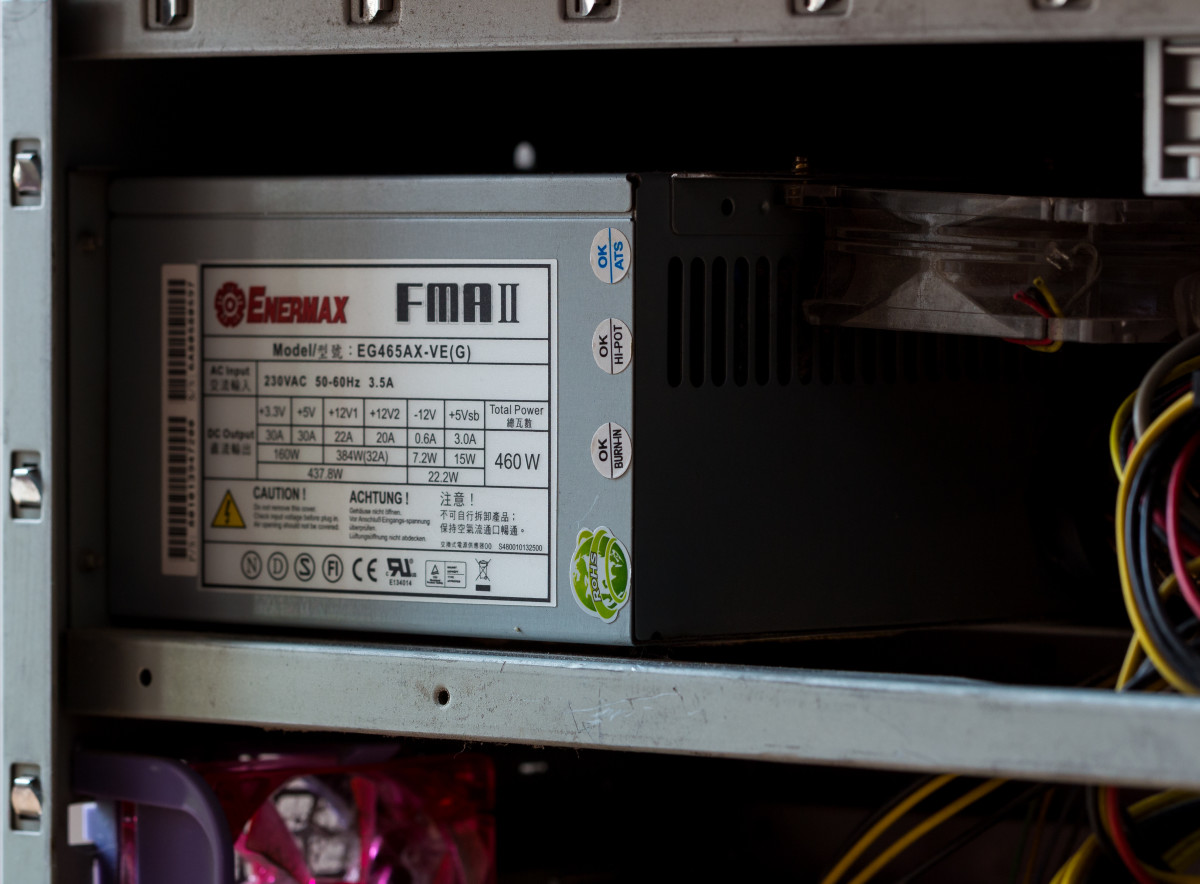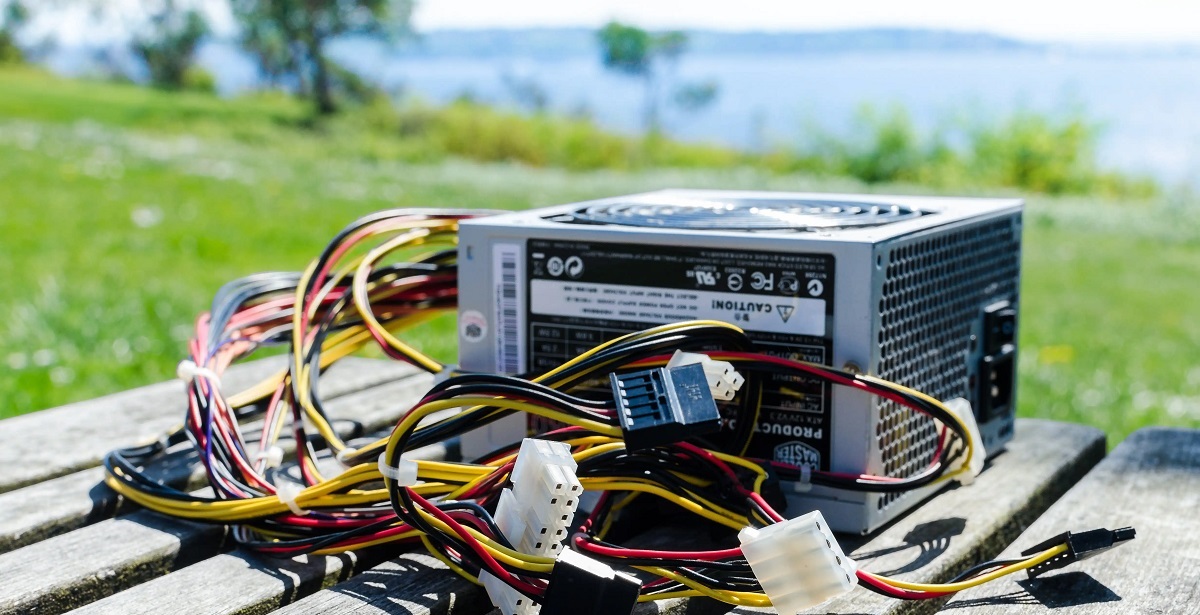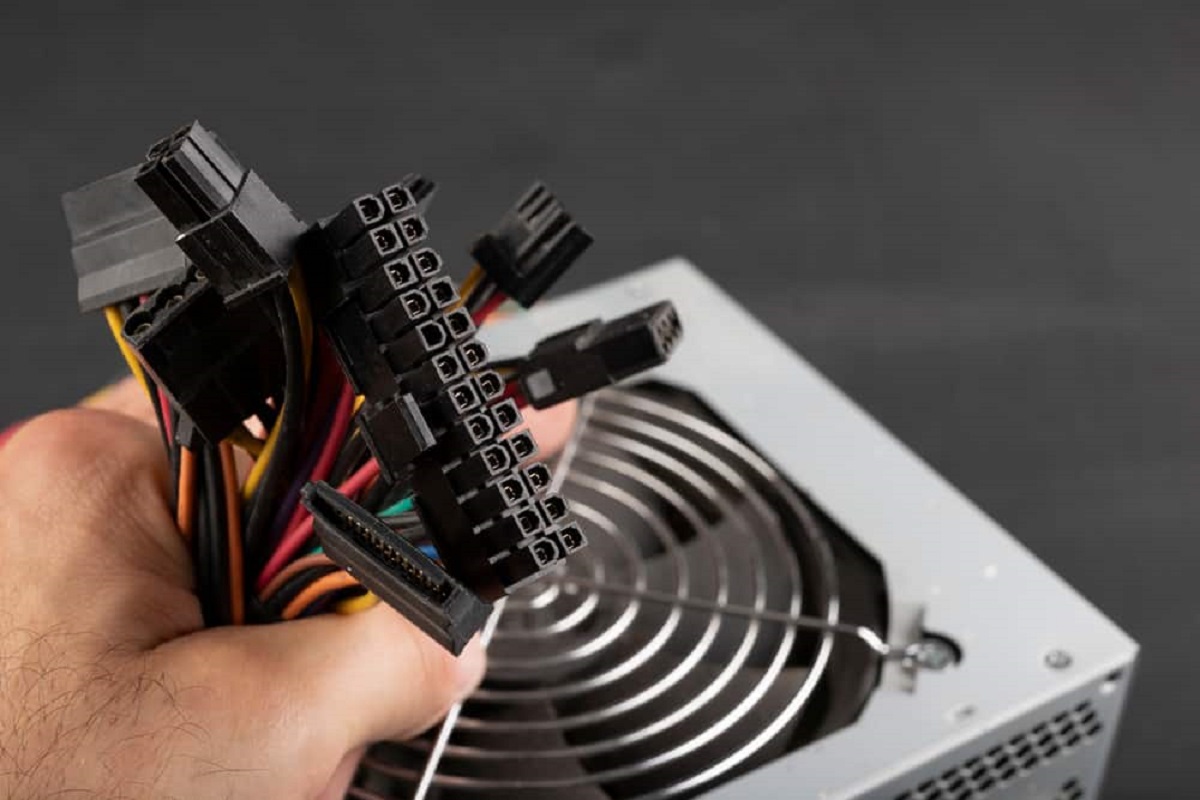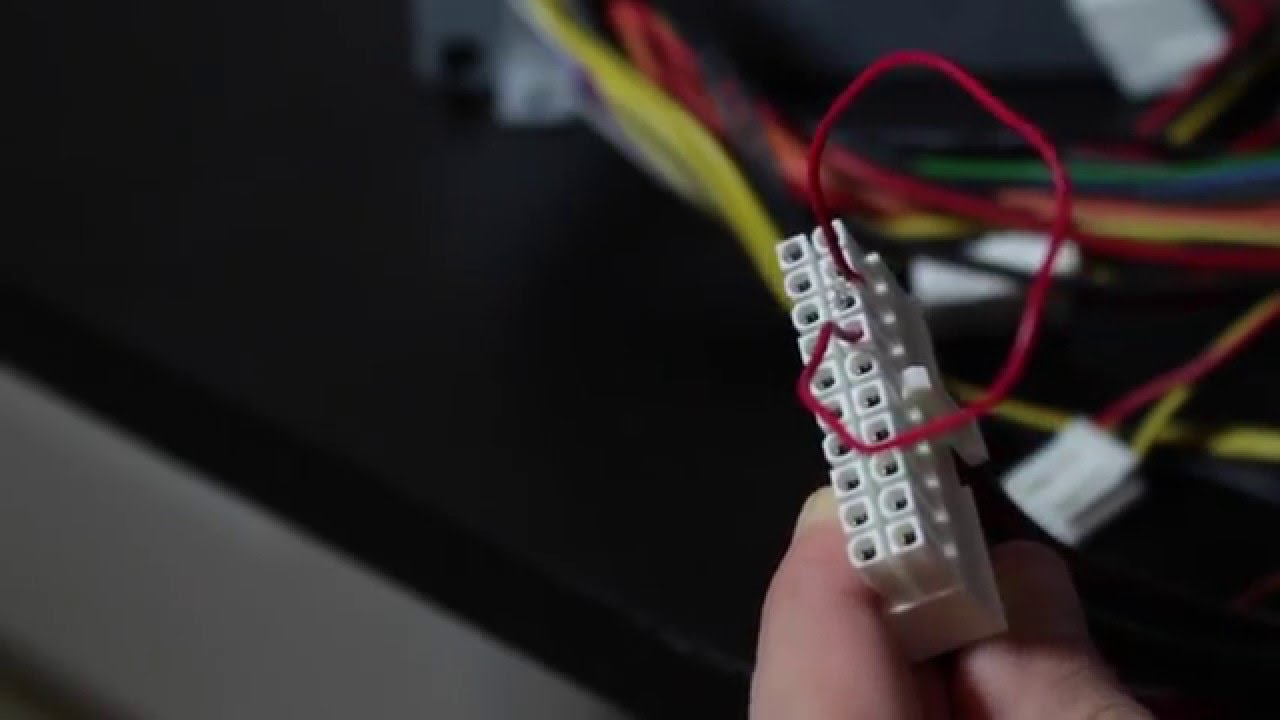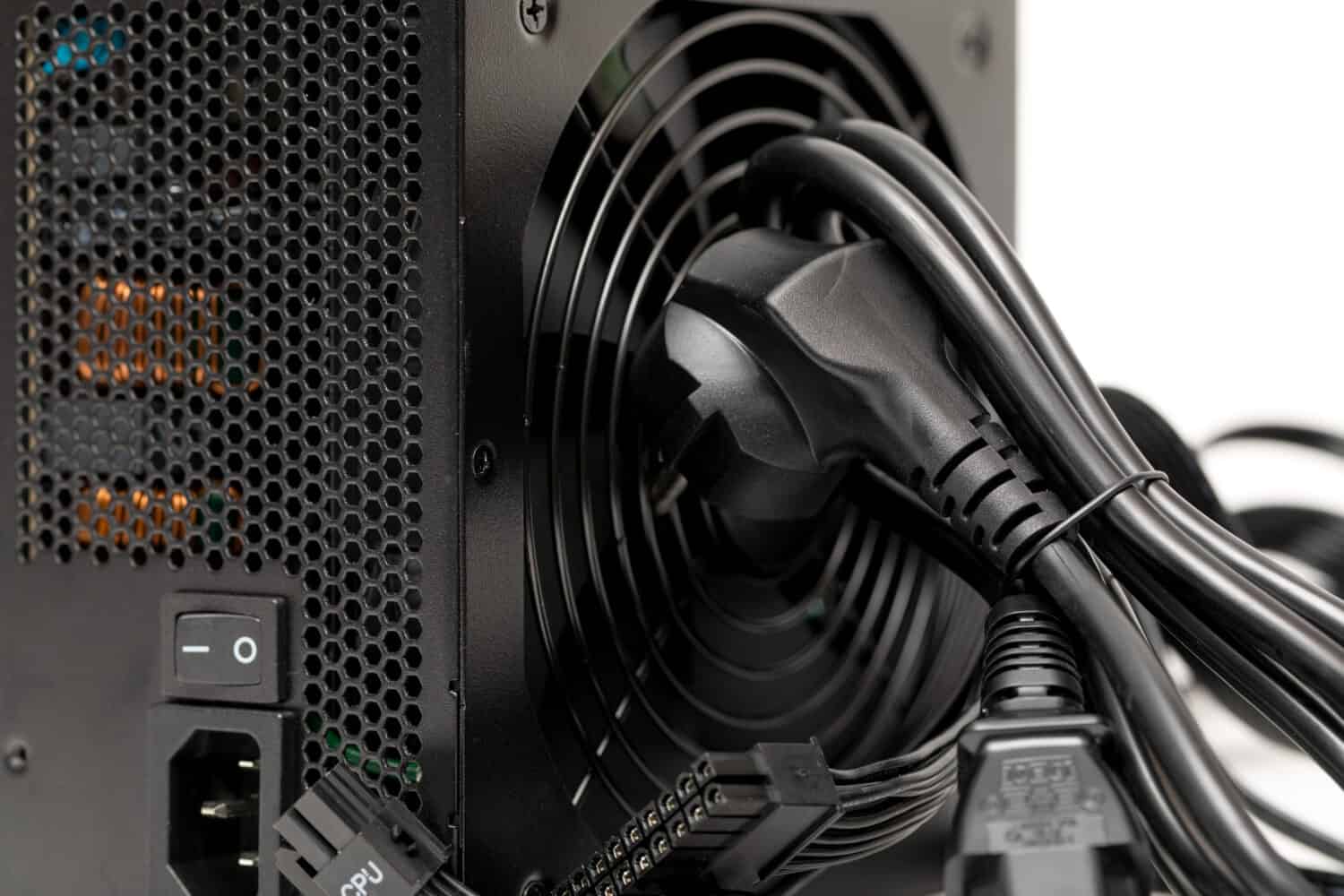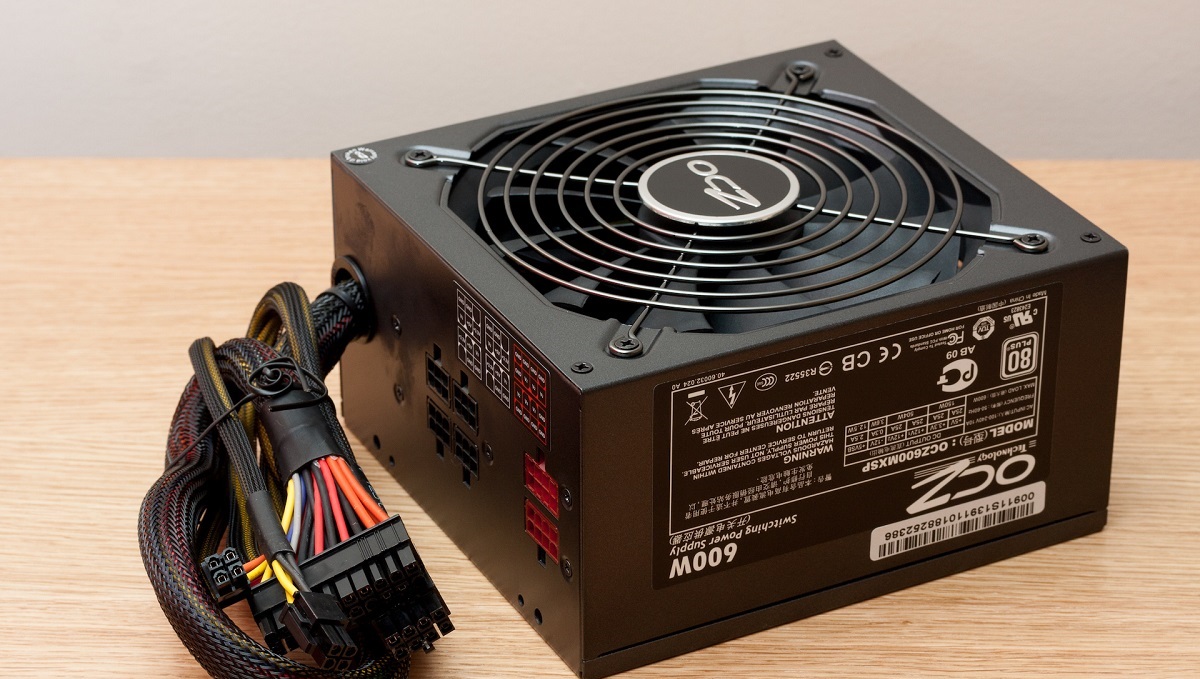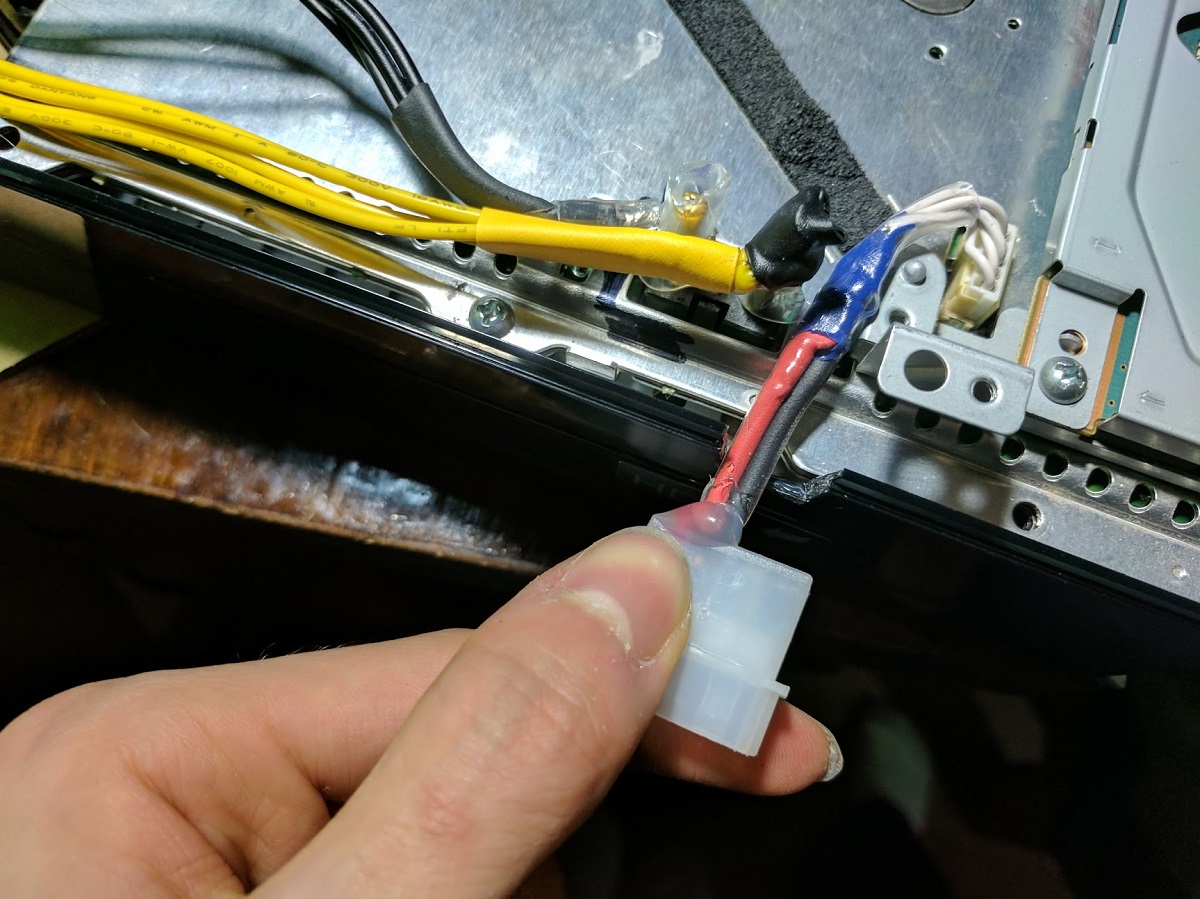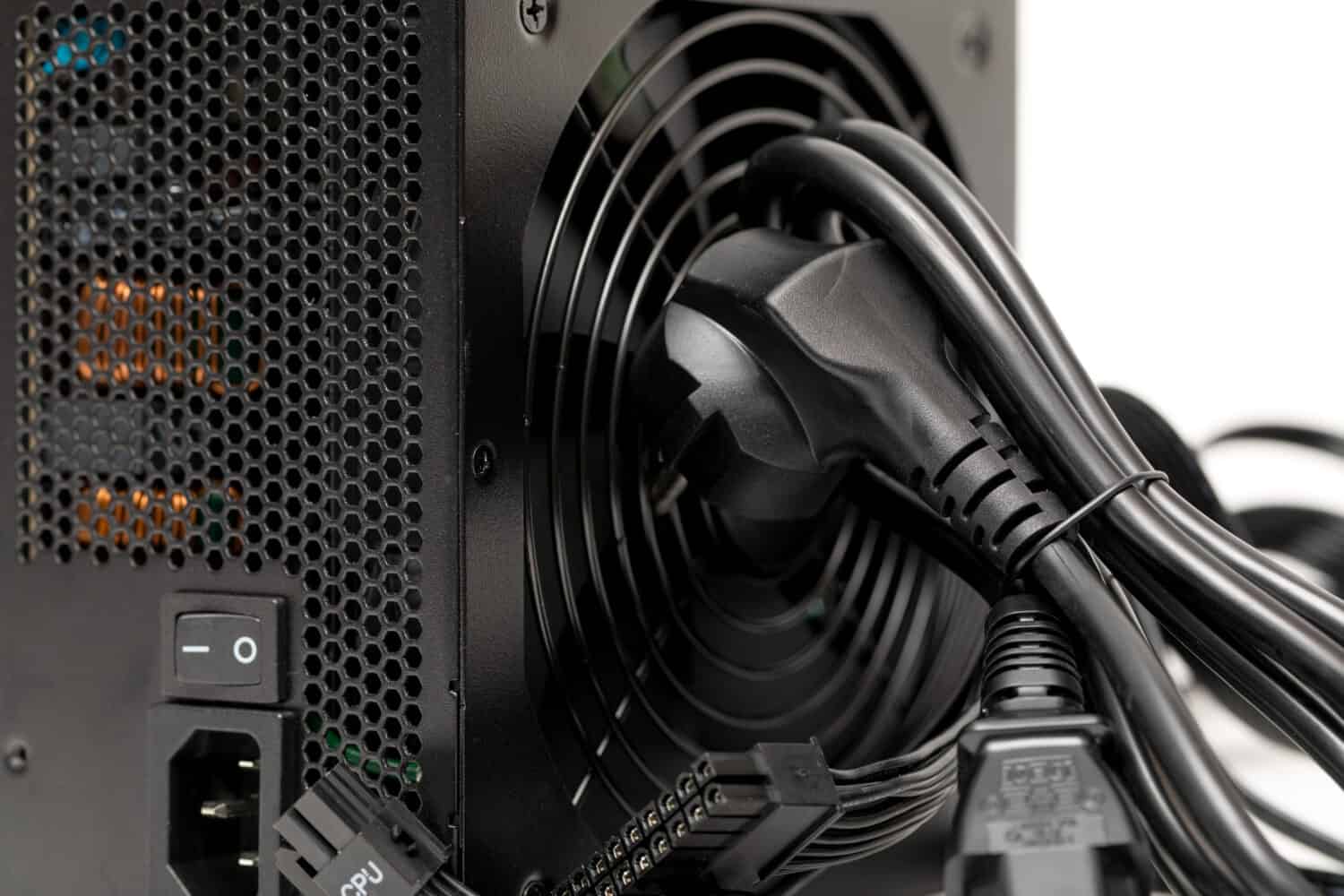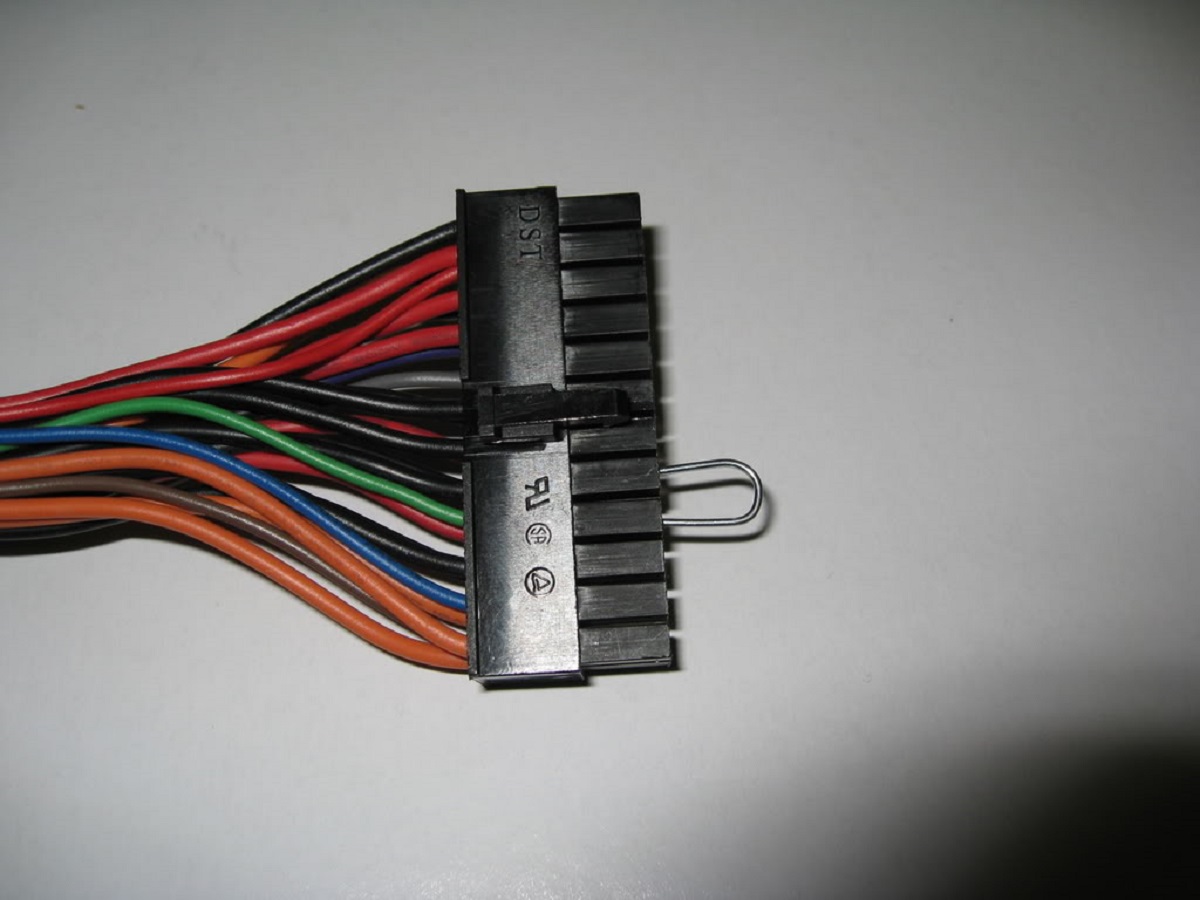Introduction
Welcome to the world of computer hardware, where every component plays a crucial role in delivering the best performance. When it comes to powering your computer, the PSU (Power Supply Unit) is at the core. The PSU is responsible for converting the incoming AC power into the necessary DC power that your computer components require.
A common misconception among PC builders is that having a more powerful PSU is always better. While it may seem logical to assume that a higher wattage PSU will offer better performance and stability, that’s not always the case. In fact, using a PSU that is too powerful for your system can lead to various issues that may compromise the overall efficiency and reliability of your computer.
Understanding the role of the PSU and its impact on your computer’s performance is essential for any computer enthusiast or gaming enthusiast. In this article, we will delve deeper into the potential risks and consequences of using a PSU that is too powerful for your system.
What is a PSU?
Before we discuss the potential risks of using a PSU that is too powerful, let’s first understand what a PSU actually is. The Power Supply Unit (PSU) is a vital component of any computer system. It is responsible for converting the alternating current (AC) power from your wall outlet into direct current (DC) power that your computer components can use.
Essentially, the PSU acts as the heart of your computer, supplying power to every component, including the motherboard, processor, graphics card, hard drives, and peripherals. It provides stable and regulated power to ensure proper functioning and prevent damage to the components.
A PSU consists of various components, including transformers, capacitors, rectifiers, and voltage regulators. It typically has multiple connectors to accommodate the power requirements of different components, such as the main 24-pin motherboard connector, 4/8-pin CPU power connector, SATA power connectors for drives, and PCIe power connectors for graphics cards.
PSUs are available in different wattages, ranging from 300 watts to over 1000 watts, to meet the power demands of various systems. The wattage of a PSU indicates the maximum amount of power it can deliver to the components. However, it is important to note that the wattage alone does not determine the quality or performance of a PSU.
PSUs are categorized into different efficiency ratings, such as 80 Plus Bronze, Silver, Gold, Platinum, and Titanium. These ratings indicate how efficiently the PSU converts AC power to DC power, with higher ratings being more efficient and less wasteful of energy.
The Role of PSU in a Computer
The PSU plays a vital role in the overall functionality and stability of your computer. It not only provides power to the components but also ensures that the power is delivered in a regulated and stable manner. Here are some key roles that the PSU performs in a computer:
- Powering the Components: The primary role of the PSU is to deliver power to the various components of your computer. From the motherboard and processor to the graphics card, hard drives, and peripherals, each component requires a specific amount of power to function optimally.
- Voltage Regulation: The PSU is responsible for maintaining a steady and regulated voltage to prevent power surges or fluctuations that could potentially damage sensitive components. It ensures that each component gets the appropriate voltage it needs to operate reliably.
- Overload Protection: A good quality PSU is equipped with built-in protection mechanisms to safeguard against overloading. It can detect when the power draw exceeds its maximum capacity and will shut down or trigger protections to prevent damage to the components.
- Cable Management: The PSU also includes cables and connectors that allow you to connect the components to the power supply. Proper cable management not only ensures a neat and organized system but also minimizes heat build-up and improves airflow within the case.
- Efficiency and Energy Savings: A high-quality PSU with a higher efficiency rating can optimize power usage and reduce energy wastage. This can lead to lower electricity bills and a greener computing setup.
It is important to choose a PSU that meets the power requirements of your components while providing sufficient headroom for future upgrades. Using an underpowered PSU can lead to instability, crashes, and potential damage to your system, while using an overpowered PSU can have its own set of issues, which we will discuss in the next sections.
Understanding Wattage and Voltage
When it comes to selecting a PSU for your computer, it is crucial to have a clear understanding of wattage and voltage. These two factors play a significant role in determining the compatibility and performance of your system.
Wattage: Wattage refers to the power capacity of the PSU and indicates how much electrical power it can supply to your components. It is measured in watts (W). A higher wattage PSU generally means that it can deliver more power to your system, providing headroom for power-hungry components and future upgrades. However, it is important not to overspecify the wattage, as an excessively powerful PSU can lead to inefficiency and potential issues, as we will discuss later.
Voltage: Voltage, measured in volts (V), represents the electrical potential difference between two points. In the context of PSUs, it refers to the voltage output by the power supply to the components. Different components in your computer require specific voltage levels to operate properly. The PSU must be capable of providing the correct voltages to the respective components. Common voltages include +3.3V, +5V, and +12V.
It is important to note that modern PSUs are usually designed to automatically adjust the voltage levels to ensure compatibility with different components. This is known as Active Power Factor Correction (Active PFC) and ensures a stable power supply to your system.
When choosing a PSU, it is recommended to consider the power requirements of your components and select a PSU with a wattage that provides sufficient power without exceeding the needs of your system. Additionally, checking the required voltages of your components and ensuring that the PSU can deliver them accurately is essential to prevent any compatibility issues.
It is worth mentioning that using a high-efficiency PSU, such as those with an 80 Plus certification, can help optimize power usage and reduce energy wastage. These PSUs utilize advanced technologies to ensure energy efficiency during power conversion, resulting in lower operating costs and a more environmentally friendly system.
Potential Risks of Using a PSU That Is Too Powerful
While having a more powerful PSU may seem like a good idea, especially to ensure stability and future compatibility, it can actually introduce a range of potential risks and issues. Here are some risks associated with using a PSU that is too powerful:
- Heat Generation and Cooling Issues: An overpowered PSU generates more heat than necessary. This can put a strain on the cooling system of your computer, potentially leading to higher temperatures and decreased overall system performance. Additionally, excessive heat can reduce the lifespan of certain components, such as capacitors, and may even result in system crashes or shutdowns.
- Overloading Components: When you have a power supply that exceeds the power requirements of your components, there is a risk of overloading them. Components such as the motherboard, graphics card, and hard drives are designed to operate within specific power limits. Using an overly powerful PSU can cause these components to draw more power than they can handle, potentially leading to premature failure or damage.
- Wasted Energy and Increased Costs: An overpowered PSU will draw more power from your electrical outlet than necessary, resulting in wasted energy. This not only impacts the environment but also increases your electricity costs. Over time, using a PSU with excessive power can lead to unnecessary expenses without providing any tangible benefits.
- Compatibility Issues with Other Hardware: Some high-end components, such as graphics cards, may require specific power supply configurations. If you use a PSU that is significantly overpowered, it may not have the right connectors or voltage outputs to accommodate these components. This can result in compatibility issues and prevent your system from functioning optimally.
- Potential Damage to the Motherboard: Using a PSU that is too powerful can put excessive stress on the motherboard’s power delivery system. Over time, this can lead to damage to the motherboard’s components, such as voltage regulators and capacitors. This could result in instability, crashes, or even complete failure of the motherboard.
It is important to select a PSU that matches the power requirements of your components, providing enough power for stable operation without going overboard. This ensures optimal performance, longevity, and compatibility while minimizing potential risks and issues associated with an overpowered PSU.
Heat Generation and Cooling Issues
One of the significant risks associated with using a PSU that is too powerful for your system is increased heat generation and potential cooling issues. While it may seem counterintuitive, an overpowered PSU can cause problems with the overall temperature management of your computer.
When a PSU is rated for more power than your components require, it works less efficiently and generates excess heat as a byproduct. The additional power capacity is not utilized by the components, resulting in wasted energy that is converted into heat. This can put a strain on the cooling system of your computer and lead to several issues:
- Higher Temperatures: The excess heat generated by an overpowered PSU can raise the overall temperature inside your computer case. This can affect the performance and lifespan of other components. Components like the CPU and RAM may start to throttle or reduce their performance to prevent overheating, leading to decreased system stability and sluggishness.
- Inefficient Cooling: The increased heat generated by the overpowered PSU can overpower the capabilities of your existing cooling system. The system’s fans, heat sinks, and other cooling mechanisms may struggle to dissipate the excess heat, leading to higher temperatures overall. This can result in thermal throttling, where components reduce their performance to prevent damage, and can even cause system shutdowns.
- Reduced Lifespan of Components: Excessive heat can impact the longevity of various components in your computer. Capacitors and other sensitive components may degrade faster under higher temperatures, leading to potential failure or instability. When components are subjected to prolonged periods of high temperatures, their lifespan can be significantly reduced, requiring earlier replacements or repairs.
To mitigate heat generation and cooling issues, it is best to match the wattage of your PSU with the power requirements of your components. This ensures that the PSU is operating within its optimal range, minimizing unnecessary heat production. Proper airflow within the computer case is also vital. Ensuring good cable management, having adequate cooling fans, and using efficient heat sinks can all contribute to cooling efficiency and help maintain optimal temperatures.
Choosing a PSU with an appropriate wattage also means that the power supply is more likely to operate in its peak efficiency range. More efficient power supplies tend to generate less heat, resulting in better overall cooling performance for your system.
By selecting the right wattage PSU and ensuring proper cooling measures, you can maintain a stable and well-ventilated system, preventing heat-related issues and protecting the longevity of your components.
Overloading Components
Using a PSU that is too powerful for your system can lead to a significant risk of overloading your components. While it may seem harmless to provide your components with more power than they need, it can have detrimental effects on their performance and longevity.
Components like the motherboard, graphics card, and hard drives are designed to operate within specific power limitations. When an overpowered PSU is used, these components may draw more power than they can handle, pushing them beyond their intended capabilities. This can result in several potential issues:
- Increased Stress: Overloading components places excessive stress on their circuitry and other electrical components. This can lead to accelerated wear and tear, potentially causing them to fail prematurely. Components that are consistently pushed beyond their limits are more likely to experience instability, crashes, and other performance issues.
- Higher Operating Temperatures: Overloading components can cause them to operate at higher than optimal temperatures. When components draw more power than necessary, they generate more heat. This heat can accumulate and lead to thermal throttling, where the component reduces its performance to prevent overheating. Prolonged exposure to high temperatures can degrade component lifespan and increase the risk of failure.
- Reduced Efficiency: Components operating outside their designated power range may not perform optimally. They may consume excessive power, generating more heat and potentially diminishing their efficiency. This can result in slower processing speeds, graphic anomalies, and overall decreased system performance.
- Potential Damage: Operating components consistently under excessive power loads can lead to permanent damage. Overloading can cause electrical spikes, voltage surges, or even electrical short circuits. These electrical irregularities can irreparably damage sensitive circuitry, rendering the component unusable or requiring costly repairs.
It is crucial to select a PSU that matches the power requirements of your components to prevent overloading. By using a PSU with the appropriate wattage, you ensure that each component receives the necessary power without exposing them to unnecessary risks.
When choosing a PSU, consider the power draw of your components, leaving some headroom for future upgrades. Avoid the temptation to opt for an excessively powerful PSU simply because it provides a buffer – too much power can be just as detrimental as too little. Striking the right balance between power capacity and component needs ensures optimal performance, stability, and longevity for your system.
Wasted Energy and Increased Costs
Using a PSU that is too powerful for your system can result in wasted energy consumption and increased costs. While it may seem logical to assume that a higher wattage PSU would provide better performance, using excessive power capacity can lead to inefficiencies and unnecessary expenses.
Here are some ways in which an overpowered PSU can result in wasted energy and increased costs:
- Power Draw: An overpowered PSU will draw more power from your electrical outlet than necessary. Since the components in your system only require a certain amount of power, the excess power capacity provided by the PSU goes to waste. This leads to higher electricity bills and unnecessary energy consumption, impacting both your wallet and the environment.
- Decreased Efficiency: PSUs are typically most efficient when operating at approximately 50-70% of their maximum load. When an overpowered PSU is used, the actual power drawn by the components may be significantly lower than the PSU’s capacity, resulting in low efficiency. As a result, the PSU may operate outside of its peak efficiency range, wasting more energy and generating excess heat. Over time, this inefficiency can result in higher operating costs.
- Environmental Impact: Using an overpowered PSU not only affects your energy bills but also contributes to environmental inefficiencies. The excess power consumed by the PSU translates to increased carbon emissions from power generation. By choosing a PSU with an appropriate wattage, you can minimize your carbon footprint and contribute to a greener approach to energy consumption.
- Long-Term Costs: Over time, the increased energy consumption caused by an overpowered PSU can accumulate into significant costs. The wasted energy adds up, and the extra expenses can outweigh any potential benefits gained from having a higher wattage PSU. By right-sizing your PSU to match your system’s power requirements, you can avoid unnecessary long-term costs.
It’s essential to carefully assess the power requirements of your system’s components and choose a PSU that meets those requirements without exceeding them significantly. By selecting a PSU with an appropriate wattage, you can optimize power usage, reduce energy wastage, and save on electricity expenses in the long run.
Additionally, consider investing in a power supply with a higher efficiency rating, such as an 80 Plus certified PSU. These power supplies are designed to minimize energy wastage and operate more efficiently, leading to further cost savings and environmental benefits.
Compatibility Issues with Other Hardware
Using a PSU that is too powerful for your system can introduce compatibility issues with other hardware components. While it may seem like having more power is always a good thing, an excessively powerful PSU may lack the necessary connectors or voltage outputs to accommodate specific components in your system.
Here are some potential compatibility issues that can arise with an overpowered PSU:
- Lack of Required Connectors: Different components in your system, such as high-end graphics cards or storage drives, may require specific power connectors. An overpowered PSU may not have enough of these connectors, leading to the inability to properly power certain components. This can result in components not functioning correctly or even being unusable in your system.
- Incorrect Voltage Outputs: Components in your system have specific voltage requirements, such as +3.3V, +5V, and +12V. An overpowered PSU may not be designed to deliver the precise voltages needed by certain components. This can lead to compatibility issues and potential damage to the component due to incorrect voltage supply.
- Incompatibility with Power Delivery Systems: Power delivery systems on motherboards vary depending on the model and manufacturer. An overpowered PSU may not align with the power delivery system on your motherboard, resulting in improper power distribution. This can lead to instability, system crashes, or even damage to the motherboard and other components.
- Additional Costs for Adapters or Converters: If you are using an overpowered PSU and encounter compatibility issues with specific components, you may need to purchase additional adapters or converters to make them work. This adds unnecessary expenses to your build and can also introduce more points of failure or electrical inefficiencies.
It is crucial to ensure that your PSU is compatible with the power requirements of your components. By matching the wattage, connectors, and voltage outputs of the PSU to your system’s specifications, you can minimize the risk of compatibility issues and ensure seamless operation of all components. Consult the documentation and specifications of your components and the PSU to ensure they are compatible.
When upgrading or building a new system, it is beneficial to plan ahead and consider the power requirements of potential future components. This can help ensure that the PSU you choose not only meets the current needs but also provides headroom for future upgrades without introducing compatibility concerns.
Potential Damage to the Motherboard
Using a PSU that is too powerful for your system can pose a significant risk of potential damage to the motherboard. The motherboard is the central hub that connects all the components in your computer, and it relies on a stable and regulated power supply to function correctly. An overpowered PSU can introduce several potential issues:
- Stress on Power Delivery System: An overpowered PSU can place excessive stress on the power delivery system of the motherboard. The motherboard’s voltage regulators and capacitors may not be designed to handle the higher power loads associated with an overpowered PSU. Prolonged exposure to such stress can lead to the degradation of these components, resulting in decreased stability and increasing the risk of failure.
- Voltage Fluctuations: An overpowered PSU may not deliver the precise voltage levels required by the motherboard. This can lead to voltage fluctuations, spikes, or inconsistencies in power supply. These electrical irregularities can damage sensitive circuitry on the motherboard, potentially leading to malfunctions, system instability, or complete failure.
- Compatibility Issues: Motherboards have specific power requirements dictated by their design and configuration. An overpowered PSU may not align with these power requirements, leading to compatibility issues. Incompatibilities can result in improper power distribution, inadequate grounding, or other electrical abnormalities, all of which can pose a risk to the motherboard’s integrity and functionality.
- Electrical Shorts: Using an overpowered PSU increases the potential for electrical shorts, especially if the PSU does not have necessary protections or if the excess power causes components to draw more current than they can handle. Electrical shorts can occur when there is an unintended path for electrical current, resulting in damage to the motherboard’s traces, circuitry, or components.
The potential damage to a motherboard caused by an overpowered PSU can vary depending on the specific system and circumstances. However, it is essential to take precautions to prevent such damage. This includes selecting a PSU with an appropriate wattage that matches the power requirements of your components and motherboard.
When choosing a PSU, consider the manufacturer’s recommendations, motherboard specifications, and the power draw of your components. By ensuring that the PSU is compatible with the motherboard and provides the necessary power in a regulated manner, you can minimize the risk of potential damage to this crucial component of your system.
Conclusion
Choosing the right power supply unit (PSU) for your computer system is crucial for optimal performance, stability, and longevity. While it may seem logical to opt for a more powerful PSU, using one that exceeds your system’s requirements can lead to various risks and issues.
An overpowered PSU can result in heat generation and cooling issues, causing higher temperatures and potential system instability. It can also overload components, putting stress on their circuitry and potentially leading to premature failure. Furthermore, using an overpowered PSU wastes energy, increases costs, and contributes to higher electricity bills.
Compatibility issues can arise when using an overpowered PSU, as it may lack the necessary connectors or voltage outputs for specific components. Moreover, an overpowered PSU poses a risk of potential damage to the motherboard, which can result from stress on the power delivery system, voltage fluctuations, compatibility issues, or electrical shorts.
To avoid these risks and issues, it is essential to select a PSU that matches the power requirements of your components. Consider factors such as wattage, voltage outputs, and compatible connectors. Planning for future upgrades can also help ensure that the PSU provides sufficient power without exceeding your system’s needs.
By choosing a PSU that is appropriately sized for your system, you can ensure efficient power delivery, minimize heat generation, and protect the overall stability and lifespan of your components. Additionally, investing in a PSU with higher efficiency ratings can save energy, reduce environmental impact, and result in long-term cost savings.
Remember, striking the right balance between power supply and component requirements is key to building a reliable and efficient computer system. Take the time to research and choose a PSU that meets your needs precisely, as this will contribute to a smoother and more enjoyable computing experience in the long run.







